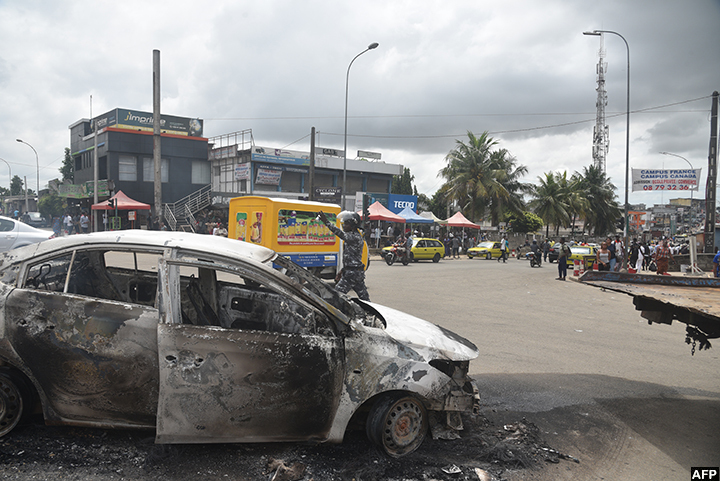Ivory Coast: Tensions since Ouattara's candidacy
On August 6, Ouattara finally announces he will seek re-election in October.
Ivory Coast has been in turmoil after President Alassane Ouattara shook the country by declaring he would run for a third term in the elections on October 31.
A timeline:
- Ouattara steps aside -
On March 5, 2020, Ouattara, 78, announces he will not run for a third term in order to make way for "the younger generation". It ends months of speculation over whether he would seek another mandate.
- Coulibaly steps in -
In mid-March, Prime Minister Amadou Gon Coulibaly is nominated as the ruling RHDP party's candidate.
- Sudden death -
On July 8, Coulibaly dies unexpectedly from a heart attack, plunging the country into uncertainty.

- Ouattara will run -
On August 6, Ouattara finally announces he will seek re-election in October.
The opposition slam the decision, saying it is against the constitution, which allows two terms, but Ouattara and his supporters argue that a 2016 constitutional tweak reset the clock.
- Protests and violence -
Ouattara's announcement triggers protests that turn violent, leaving around 15 people dead.
On August 22, Ouattara is formally chosen by his party to run for a third term.
- Gbagbo and Soro candidates -
On September 3, former president Laurent Gbagbo, as well as former rebel leader, turned prime minister Guillaume Soro also file their candidacies.
The ex-president Henri Konan Bedie, 86, is officially nominated as a candidate for his party on September 12.
- Validated and rejected -
On September 14, the country's top court authorises only four candidacies out of 44 applications it received. It validates Ouattara's bid but bars Gbagbo and Soro.
- Boycott call -
On October 15, Bedie and former prime minister Pascal Affi N'Guessan -- two leading opposition candidates -- call for an "active boycott" of the electoral process running up to the poll, which they brand "illegal".
Since August, deadly incidents and clashes have left around 30 people dead.